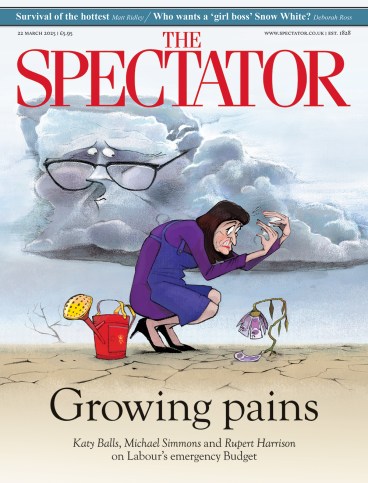
Rory Sutherland has narrated this article for you to listen to.
I follow the YouTube postings of a maverick young economist called Gary Stevenson, author of The Trading Game. Whatever you think of Gary, he is absolutely right about one thing. Economists, by using what are called ‘Single Representative Agent’ models, have taken a dangerous wrong turn. Such simplistic models, which contain the convenient but absurd assumption that what is good for the average person must be proportionately good for everybody else, have allowed economists to make confident pronouncements on policy while ignoring social and intergenerational inequality completely.
In one of the Brexit TV debates, a woman in the audience was derided by the cognoscenti because, on being told that leaving the European Union might reduce Britain’s GDP, she replied: ‘That’s your GDP, not mine.’ She was, of course, completely right. The fact that free trade increases GDP is almost certainly true but it is a fallacy to assume that it benefits everyone, everywhere, evenly and all the time.
In some ways, there is something bizarrely communistic about this assumption, even though it is often accepted by right-wing economists. It implies that we should all be prepared to subordinate our preferences in the service of the collective good.
Another assumption in economics that always strikes me as deranged is the notion that all forms of consumption are equally valuable: the assertion that net human happiness is increased equally whether I choose to spend my money in a pub or at a wedding fair, or whether I buy an electric car, a computer game or an assault rifle.
Some forms of consumption are patently cooperative; others are rivalrous. If I spend money in a pub, I am engaging in a form of cooperative consumption because not only does an additional customer’s presence in a pub add to the general merriment, but their spending helps fund a social space. Thanks to your custom, a pub is still there for others to use after you leave. By drinking in a pub, you are performing a social service every bit as much as when your taxes fund a boring leisure centre or library.
By contrast, money spent on weddings is competitive not collaborative. By staging an elaborate wedding, you are forcing others to spend more on their own weddings to maintain appearances. Indeed, the average cost of a British wedding has now risen to over £20,000 without any noticeable increase in the enjoyment of the guests. Many vicars now say that they much prefer conducting funerals to weddings, because of the idiotic perfectionism surrounding the latter.
By drinking in a pub, you are performing a social service as much as when your taxes fund a boring leisure centre
One way to look at this distinction is through the lens of what economists call ‘externalities’. What are the second-order effects of any act of consumption? Another way is by looking at network effects. Consumption which involves network effects (whether posting a letter or buying a multi-player computer game) generally benefits others far more than things consumed to set oneself apart from others in pursuit of status.
So why does our rate of VAT not reflect this distinction: between spending which adds to intrinsic happiness and socialisation, and spending driven by vanity and fomo which reduces net wellbeing? I have had a rough stab at some preliminary figures, and so far my proposals for the new Veblen Added Tax (or VAT) are as follows. Pubs, cafés, Indian restaurants and Greggs 0 per cent. Italian restaurants 5 per cent. French restaurants 100 per cent. Cheddar 0 per cent. Brie 100 per cent. Men’s clothing 10 per cent. Women’s clothing 200 per cent. Wedding-related expenditure 300 per cent. Rolling Stones tickets 0 per cent. Taylor Swift tickets 500 per cent. A society whose expenditure was directed in such ways would be scruffier and less pretentious, perhaps, but also inordinately more fun.









Comments